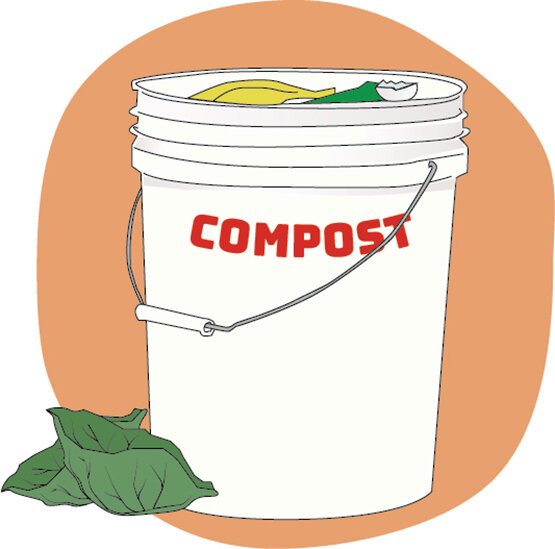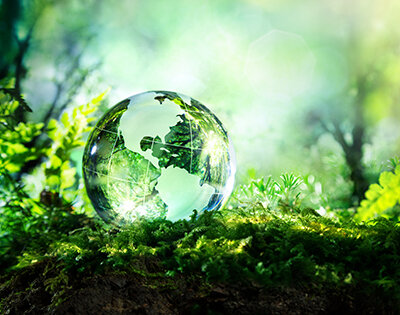On Earth Day and Every Day, Let’s Celebrate Those Wind Farms
April 29, 2024
Spring has arrived on the coast of Rhode Island, a place I have loved for decades. Daffodils are spreading cheer around a new crop of plastic anti-windmill signs; both seem to be multiplying.
“Keep it Wild!” “Save our Seas!” The campaign to halt offshore wind development started as NIMBYism; people in oceanfront mansions don’t want wind farms, however distant, in their views. Fair enough. But it has spread like a mysterious contagion from grand houses to inland corners of seacoast towns.
There is nothing like discussions about energy to politicize people. That’s been true in this neck of the country at least since ship captains in New Bedford had to contend with the end of the era of killing whales to use their blubber or spermaceti for fuel.
Oddly, whales are at the heart of today’s anti-windmill campaign. False claims abound: the installation and presence of the pylons is supposedly killing these magnificent creatures. A classic disinformation campaign has taken hold. The playbook is simple: Spread doubt about renewables, whatever it takes; promote a “both sides” mentality; divide people and conquer. The scientific evidence of the cause of whale deaths is overwhelming. These magnificent creatures get tangled in fishing gear or killed in collisions with ships.
Which gets us to saving the seas. If all the energy being expended on fighting wind and solar power were dedicated to fighting climate pollution, we would be in far better shape than we are now. Our oceans are enormous carbon sinks, which mean they absorb a great deal of the carbon we are putting into the air, and have done so since the Industrial Revolution. That helps keep the makeup of the atmosphere balanced, which in turn has kept our climate stable for thousands of years. During that time, human civilization has flourished. And so has the impact of humans — and our ingenuity in finding the fuels that mean we can keep lights on, computers humming, houses and schools warmed or cooled, food cooked.
It is incredible — really mind-blowing — to look out over those vast waters and think how humans have literally altered their chemistry. Our oceans are becoming increasingly acidic, and that is harming the lives of many sea creatures. Degraded marine ecosystems mean that the ocean loses its ability to trap carbon.
Our oceans are also becoming much warmer and that, too, is disrupting lives. Coral bleaching has reached crisis proportions. On the human side, impacts are being felt by those whose businesses depend on fishing or lobstering; those who live and work at naval bases on the coast, or whose life savings are tied up in their homes, are increasingly threatened by the brutal storms turbocharged by warmer waters. All of this is a problem for Rhode Island’s economy.
Whale blubber, forests, coal mines, nuclear plants, oil wells, fracked gas: we’ve relied on all of them. But the truth is that all have come with a cost — just as do wind and solar. Nothing’s free; there’s just a balance of what’s worse and what’s safer and what’s affordable. All the transitions from one dominant form of energy to another have been disruptive. We need only look at the once-grand homes of the New Bedford sea captains who sailed away for months, even years, to hunt whales; in the mid-1800s, New Bedford was the wealthiest city per capita in North America. Those whaling empires dissolved; coal use took off, and by the turn of the 1900s, the first Texas gusher triggered an oil boom. The swamps along the Gulf Coast shores became home to the captains of the new energy industry.
Now wind turbines and solar panels are going up at a rapid clip. Who knows what other forms of energy will be renewable, reliable, less polluting, affordable, and economically feasible down the road? Engineers are hard at work; energy is a 21st-century holy grail, just as it has always been. The human capacity to solve problems is as strong — hopefully stronger! — as our capacity to create them.
People are distressed about having to see wind turbines over the horizon. I get that. But let’s change the perspective. See the greater good. Gaze upon wind turbines and think of the flourishing of your grandchildren’s world. Consider, too, the generations of people who had to look at and breathe deadly pollution from coal-fired power plants.
Let’s be real about what what’s happening under that the watery horizon, along with the harvesting of creatures to feed ourselves: The process of energy development and transfer. There are 20,000 miles of seafloor pipelines globally, laid down in trenches or running along the ocean floor. Thousands of petroleum tankers heavy with oil or liquefied natural gas crisscross the seas day and night. The number of supertankers heading to U.S. ports is increasing dramatically. The oceans have never been noisier with sonar, or more full of plastics and chemicals.
Here’s the beauty part: We know exactly what we need to do to clean things up. Save our Seas! Stop the emissions! Rhode Island is extraordinarily blessed to have serious marine scientists among us, teaching and conducting research at estimable universities. We also have state and federal legislators working valiantly to ensure investments in a cleaner future, to stop the carbon and methane emissions that are gravely endangering all ocean life (to say nothing of human life). U.S. Sen. Sheldon Whitehouse, U.S. Reps. Gabe Amo and Seth Magaziner, state Rep. Michelle McGaw, and state Sen. Linda Ujifusa come to mind. They are truly dedicated to saving the seas, and deserve our gratitude. It’s a tough battle. Be proud that a small state has taken outsized leadership in this fight.
How about putting away those plastic signs (which, by the way, are not recyclable — all that plastic trash is its own separate, but connected, tragedy). How about harnessing our talents to deploy the best, fairest ways to clean our air and power our modern lives? We’re capable of this. We’re facing a problem far larger than ideological party lines, much less ocean views. We should be celebrating the construction of those first offshore wind farms, due to be completed soon. We should be marveling at human ingenuity and engineering creativity. Marveling at the creation of new technologies, new jobs.
We should not be using wind turbines to blow divisiveness through our communities.
Keep it Wild? No one need worry about the wildness of the sea. Nature will always be wild, no matter what we do. And nature always wins. That’s because the Earth couldn’t care less whether kids or cockroaches crawl across its back. The ocean couldn’t care less whether humans ply its waters, or jellyfish inherit primacy. Only we care. We care about the civilizations we’ve built, we care about our beloved families and friends, we care about the places we love.
We, probably alone among living creatures, care about the future. We get one “wild and precious life,” as the poet Mary Oliver put it. Let’s honor it by celebrating our infinite ability to make things right rather than getting things wrong.
Dominique Browning is the director of Moms Clean Air Force and a vice president of the Environmental Defense Fund.
Categories
Join the Discussion
View CommentsRecent Comments
Leave a Reply
Your support keeps our reporters on the environmental beat.
Reader support is at the core of our nonprofit news model. Together, we can keep the environment in the headlines.
We use cookies to improve your experience and deliver personalized content. View Cookie Settings




The straw man argument that this opinion piece opens with “ False claims abound: the installation and presence of the pylons is supposedly killing these magnificent creatures” is both false and disingenuous. The piece completely ignores both correlation between the OSW survey work, which employs a variety of survey and mapping methods, and the significant increase in marine mammal deaths which has been occurring for the last 18 months. There has been ample studies done, and data does exist which points directly to the potential of harm to and adverse responses from marine mammals. If the OSW industry is so safe and environmental sound, and in keeping with good stewardship of the oceans, why is it allowed to harm, maim and kill so many marine creatures, including the endangered Right Whale, through the authorized “NOAA Incidental Takes” included in the permits issued?
You cannot continue to turn a blind eye and simply ignore what is currently happening. Would you continue to remain silent, or ignore the possibility if this was happening if there was offshore oil or gas exploration or for potential mineral mining operations?
How much greenwash gaslighting do we have to take? So much human supremacy. I am sure MCAF and I know EDF take wind industry money. As “human civilization has flourished… It is incredible — really mind-blowing — to look out over those vast waters and think how humans have literally altered their chemistry.” So the plan is to fix that with more of the same. Doing the same thing over and over again and expecting different results. What could be better on Earth Day than singing the praise of thousands of 200 ton bird chopping monster machines up and down the coast. Nature just needs us to stop. Oh yea, I’ve seen those Wind Yes yard signs. But I say NOPE Not On Planet Earth! Dads Wild Ocean Force.
https://www.golocalprov.com/news/4.3M-in-Donations-to-Enviro-Groups-from-Wind-Industry-Raises-Questions-Abo
The grounds designated for these offshore windmills are the most productive squid grounds on the Atlantic coast. This marine resource is a natural gift from our Creator that we did not plant or cultivate or feed, we only have to harvest and protect this natural food resource. These outrageously expensive electricity producers feed only the pockets of the designers, the developers and the maintenance contractors. Who else would support such development in our oceans and what is their reasoning? Never substitute the natural production of a food resource with energy development. You cannot eat electricity.
Well- she has one thing right- energy is about who get rich- in this case foreign energy giants who as she states- don’t care what they put in the ocean as long as it brings them green. I think she should also be clear about where the Environmental Defense Fund is getting its “fund”.
Offshore wind is dirty and an environmental disaster. All the waxing poetic won’t change that.
These are the types of “articles” that drive people to vote for Trump. There has never been one peer-reviewed study that has shown that OSW helps with climate change. If you want to actually learn about the effects of offshore wind on the earth and its inhabitants, ask the fishermen and women who are out there every day. Offshore wind is green colonialsm, funded by wind and oil cartels who put profits before people. Make no mistake, this is about money, not altruism. As Warren Buffet said, “I will do anything that is basically covered by the law to reduce Berkshire’s tax rate,” Buffet told an audience in Omaha, Nebraska recently. “For example, on wind energy, we get a tax credit if we build a lot of wind farms. That’s the only reason to build them. They don’t make sense without the tax credit.”